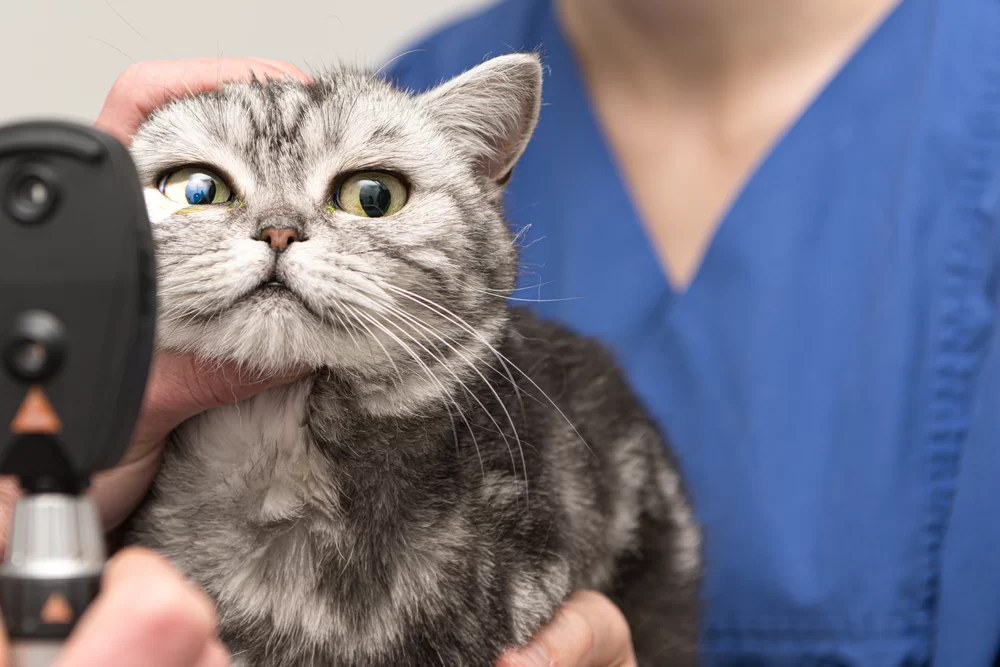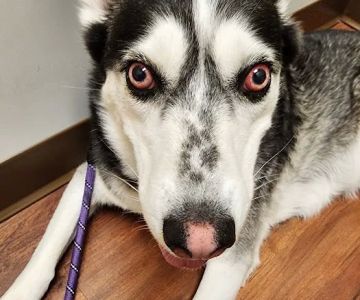Why Pet Eye Exams are Crucial for Your Pet's Health
As a pet owner, I’ve always believed that our furry companions deserve the best care we can provide, and this includes looking after their eyes. It wasn't until I noticed my dog, Max, struggling to navigate around the house one evening that I realized how often we overlook eye health in pets. Max, normally energetic and playful, seemed disoriented, bumping into furniture and staring off into space. That was the moment I realized how important regular eye exams for pets truly are. Eye health isn’t just about preventing blindness; it’s about maintaining a good quality of life for our pets.
The Common Signs of Eye Problems in Pets
Many pet owners, myself included, often assume that if a pet's eyes look normal, their vision is fine. However, our pets can be masters at hiding discomfort, and by the time we notice something’s wrong, the issue may have already progressed significantly. I learned this firsthand when Max started showing subtle signs that I initially ignored, thinking they were just part of his quirky behavior. A few of these signs include:
- Squinting or excessive blinking
- Discharge or mucus around the eyes
- Redness or swelling of the eyelids or around the eyes
- Cloudiness or unusual color in the eyes
- Frequent pawing at the eyes or rubbing face on surfaces
It’s easy to dismiss these symptoms as minor issues, but in reality, they could signal anything from allergies to serious conditions like glaucoma or cataracts. By recognizing these signs early, I was able to get Max the veterinary care he needed, preventing the condition from worsening.
Common Eye Conditions in Pets
There are several eye conditions that pets, especially dogs and cats, are prone to. Some of these issues can lead to permanent vision loss if not detected and treated early. Here are some of the most common eye conditions that can affect your pet:
- Conjunctivitis: Inflammation of the outer layer of the eye. This can be caused by infections, allergies, or environmental irritants.
- Cataracts: Clouding of the eye lens, which can lead to blindness if not treated.
- Glaucoma: A condition caused by increased pressure in the eye, which can damage the optic nerve and lead to vision loss.
- Corneal Ulcers: Open sores on the surface of the eye, usually caused by injury or infection.
- Dry Eye: A condition where the eye doesn't produce enough tears, leading to dryness, irritation, and potential damage to the eye surface.
Regular eye exams at the vet can help detect these conditions early. In Max’s case, we found that his occasional squinting was due to a mild form of conjunctivitis, which we were able to treat before it became more serious.
The Benefits of Regular Eye Exams for Your Pet
Eye exams for pets should be a routine part of their healthcare, just like vaccinations or dental check-ups. During an eye exam, a veterinarian can evaluate your pet's vision, check for early signs of disease, and detect abnormalities before they become more severe. I can’t emphasize enough how important it is to catch these conditions early, as many eye problems are treatable when diagnosed in their early stages. Here are some of the key benefits of regular eye exams for your pet:
1. Early Detection of Vision Problems
Vision problems are often difficult to detect until they reach advanced stages. Pets, especially cats and dogs, tend to rely on other senses if their vision is impaired. This makes it harder for us as pet owners to notice when something is wrong. Regular eye exams help detect vision problems early, so you can start treatment before your pet’s quality of life is affected. In Max’s case, early detection of his conjunctivitis allowed us to use antibiotics and clear up the issue before it impacted his ability to play and explore.
2. Prevention of Serious Conditions
Some eye conditions, like glaucoma, can lead to irreversible damage to the eyes and permanent vision loss. Regular exams help catch conditions like these in their early stages, making treatment more effective. For example, early intervention in cases of cataracts can help slow the progression and may even lead to successful surgery to restore vision. For pets that are prone to hereditary conditions like glaucoma, having regular eye exams can be life-changing in terms of preventing vision loss.
3. Maintaining Overall Health
Your pet's eye health can be a reflection of their overall well-being. Many eye problems are linked to underlying health issues, such as diabetes or hypertension. For instance, diabetic pets may develop cataracts, and high blood pressure can cause retinal damage. Regular eye exams not only help maintain your pet’s vision but can also uncover other health problems. I remember when I took Max in for a routine exam, the vet noticed that his eyes were slightly swollen, which turned out to be a sign of an underlying health issue. The early diagnosis allowed us to treat it effectively and avoid more serious complications down the road.
How Often Should You Schedule Eye Exams for Your Pet?
The frequency of eye exams depends on your pet's age, breed, and health history. In general, pets should have a full eye exam at least once a year, especially as they get older. For pets with a history of eye problems, or those with certain breeds that are more prone to eye conditions (like Bulldogs or Siamese cats), more frequent exams may be necessary. In Max's case, I schedule annual eye exams, and the vet has recommended semi-annual check-ups to keep a closer eye on his health.
What Happens During a Pet Eye Exam?
During an eye exam, the vet will check your pet’s eyes for any signs of irritation, infection, or disease. They may use specialized tools to examine the eyes more closely, including a slit lamp to check the cornea and retina. The vet will also evaluate the overall health of the eye and look for signs of diseases like glaucoma or cataracts. If necessary, they may take further steps, like blood tests or imaging, to determine the cause of any abnormalities. The exam is typically quick, non-invasive, and can give you peace of mind about your pet’s vision.
In conclusion, regular eye exams are essential to keeping your pet’s eyes healthy and ensuring they maintain good vision throughout their life. By staying on top of their eye health, you can prevent serious issues from developing and help your pet lead a happy, comfortable life.












